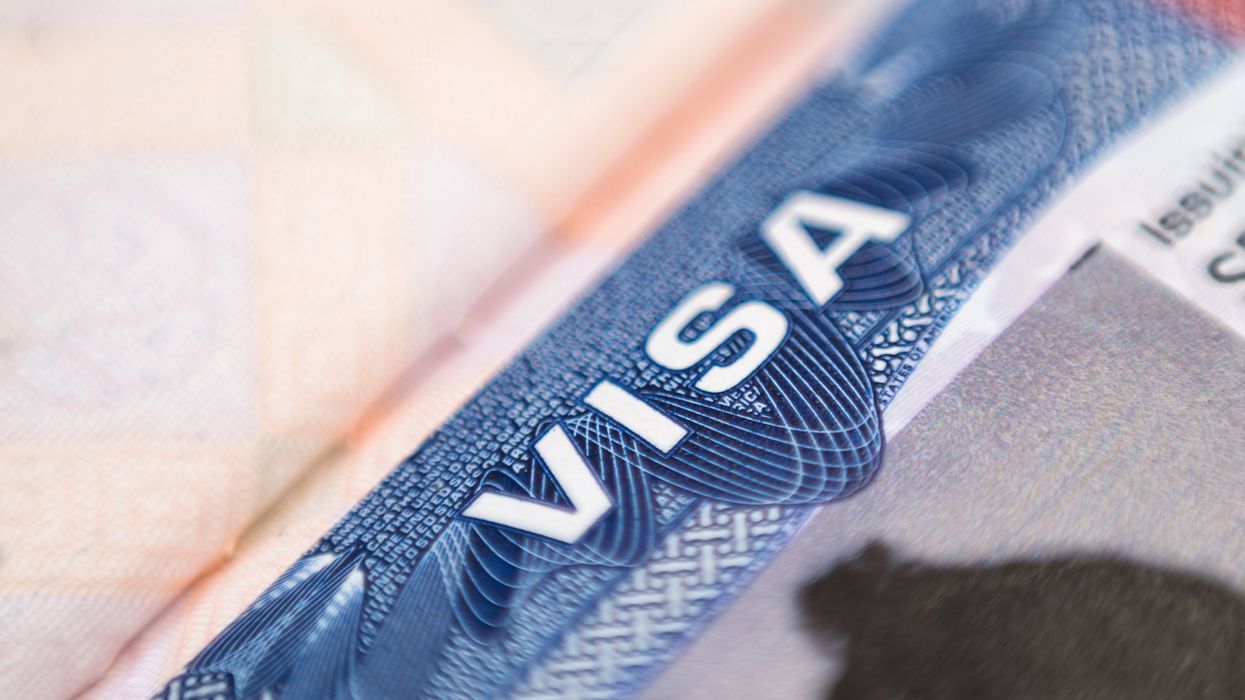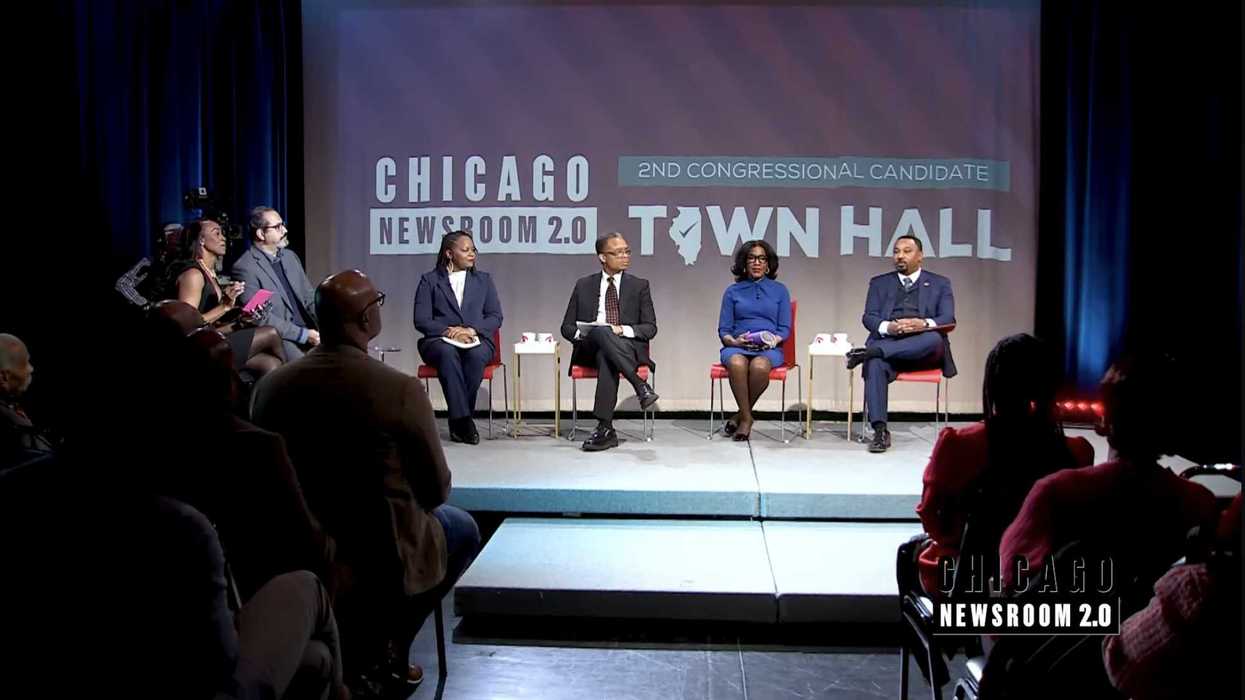This article is part of a short series examining the Trump administration’s impact on international students in American higher education. This is the second and final installment of the series, which is focused on F1 student visa-to-citizenship pipelines.
The first part of the series, entitled “ Legal Battles Continue for International Students With Pro-Palestinian Views,” was about ongoing litigation against the Trump administration for ideological deportations in higher education.
One of the main reasons a Northwestern Chinese international student came to the U.S. for his Ph.D. after being admitted to universities in several countries was that he thought “the U.S. is the most powerful country in the world, and they probably had the most advanced technology.” He was originally planning to look for a job in the U.S. after finishing his Ph.D. The Ph.D. student is being kept anonymous for fear of retaliation against his legal status for speaking out.
“This kind of chaos has made me not only confused, but also very concerned about the future of staying in the U.S.,” he said. “Because if they can't justify their actions, it is intuitive to think they can do whatever they want to international students. This visa revocation thing, it really changed my career planning in the future.”
He said that while considering leaving the U.S., he’s open to moving to other countries besides China after finishing his Ph.D. here. In a recent poll from Nature, 255 of 340 Ph.D. student respondents said the disruptions to scientific research and funding by the Trump administration prompted them to consider leaving the U.S.
“I just came here to join the lab and to do the research I want to do,” he said.
Sarah Spreitzer from the American Council on Education said she worries that the instability surrounding immigration will make the U.S. less competitive for international students, propelling a brain drain.
“We've not only seen efforts to try to recruit international students who may be worried about studying in the U.S., but we have also seen efforts from various countries in recruiting scientists who previously may have been working in the United States,” Spreitzer said. “That's not only our domestic scientists, but also our international people.”
The American higher education system — lauded internationally for its STEM and Humanities research, innovation and advancement of technology and culture, and diverse student bodies — has offered a viable pathway to U.S. citizenship for international students through the F1 visa since the 1950s.
However, the Trump administration’s recent visa revocations and subsequent restorations, as well as its sweeping deportation agenda, have forced many international students to rethink their post-graduate plans for employment and consider other countries to start their careers.
According to Pew Research, the U.S. has long hosted the world’s largest share of international students and set its own record for the highest number of international students, at 1.1 million in November 2024, according to the Institute for International Education.
The most common pathway for international students to stay in the U.S. after their collegiate tenure is to transition from an F1 student visa to the H-1B work visa or to the Optional Practical Training (OPT) program, which allows the holder to continue residing in the U.S. on the condition of employment. According to Pew Research, between 2004-2016, the U.S. offered almost 1.5 million OPT work authorizations and 1.5 million H-1B work authorizations.
The latest advancements in technology and equipment, as well as research opportunities, are two reasons international students choose to study abroad in the U.S. Professor Anthony Hernandez at the Educational Policy Studies Department at the University of Wisconsin, Madison, said one of his international students shared with him how scarce research opportunities were becoming.
“One of my students shared with me yesterday that students who are in graduate programs, who are international students, who are in postdocs, are seeing the money dry up and the opportunities dry up,” he said. “My students are hard-working and tremendous at this place. You really have to be a top student to be here.”
Hernandez added that the Trump administration’s visa revocations were part of a broader attack on the diversity of college campuses.
“They are intentionally attacking diversity, and then who can be seen as part of the American identity,” he said. “Imagine all of their hopes and dreams as young international students coming to this place, but with this type of project being weaponized to exclude students from international backgrounds, it would render invisible their experiences and try to portray a particular American profile that is not reflective of them.”
The Ph.D. international student from Northwestern cited the diversity of American universities as one of his primary reasons for choosing the U.S. for his studies.
“I've always seen the U.S. as a very diverse country, as a country with a very diverse people, which is what I want, just to interact with different people and to experience different cultures,” he said. “Most people I met, even I would say, all of the people I met, they are super friendly and they are super inclusive. I have had a very great time talking with them and working with them, but I also understand that the country itself is shifting a little bit toward not very friendly to foreign nationals.”
Another Chinese international student from Northwestern said she saw a lot of unverified information on Red Note—a Chinese social media platform that has gained traction as a TikTok alternative in the U.S.—about the Trump administration’s F1 visa revocations. She shared how one post alleged that a domestic dispute between a woman and her boyfriend, in which the police were called but no charges were filed, led to a visa revocation.
The international student is being kept anonymous for fear of retaliation against her legal status for speaking out.
Such posts, combined with the lack of transparency around why international students’ visas were being revoked, led to many taking measures such as reducing their social media presence or not discussing political opinions in public settings or platforms. Others felt such measures defeated the purpose of studying abroad.
“I feel like if I have to do so many extra things, then why did I come here in the first place. At least back home, I know where everyone stands,” she said. “I'm not going to change my views, or change how I talk about things to people I trust just because there's this sword over my head.”
In April, U.S. Citizenship and Immigration Services (USCIS) announced it would begin monitoring visa and green card holders’ social media and screening them for national security threats and antisemitism. Some Democrats have been concerned with how the Trump administration has weaponized antisemitism against critics of the state of Israel, particularly against college students participating in protests like Mahmoud Khalil and Leqaa Kordia from Columbia University.
“EVERYONE should be on notice. If you’re a guest in our country – act like it. Our robust social media vetting program to identify national security & public safety risks never stops,” USCIS tweeted on April 29.
Most university student governments have a representative for the international student community. These international student representatives, who personally navigate the uncertainty around student visas while simultaneously representing other international students, have come under the spotlight as their campus constituents face unprecedented challenges.
Student leaders at the UC quickly pushed for remote learning opportunities for impacted students. As part of their advocacy, they called for timely disclosures of Immigration and Customs Enforcement's presence on University of California campuses.
“It's like an obligation in the student perspective, to stand up for times where these kinds of crackdowns happen and times students feel like they're being or honestly are being threatened,” an international student representative from the University of California said. She is being kept anonymous for fear of retaliation against his legal status for speaking out.
Atmika Iyer is a graduate student in Northwestern Medill’s Politics, Policy, and Foreign Affairs reporting program. Atmika is also a journalism intern with the Fulcrum.
The Fulcrum is committed to nurturing the next generation of journalists. Learn how by clicking HERE.






















 Mayor Ravi Bhalla. Photo courtesy of the City of Hoboken
Mayor Ravi Bhalla. Photo courtesy of the City of Hoboken Washington Street rain garden. Photo courtesy of the City of Hoboken
Washington Street rain garden. Photo courtesy of the City of Hoboken